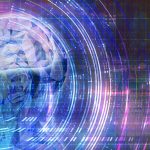Quantum computing is a field that has been a topic of curiosity and research for several years. It offers a fundamentally different approach to processing information compared to traditional computers. While classical computers use bits as the smallest unit of data, quantum computers use qubits, which can exist in multiple states simultaneously. This unique capability has the potential to revolutionize various industries by solving complex problems much faster than today’s computers.
What Are Qubits?
Qubits, or quantum bits, are the foundation of quantum computing. Unlike classical bits represented by 0 or 1, qubits can represent 0 and 1 at the same time due to the principle of superposition. This property enables quantum computers to perform multiple calculations at once, enhancing their computational power exponentially. A simple analogy is to think of it as a spinning coin that is simultaneously in both heads and tails states until observed.
How Does Entanglement Contribute?
Entanglement is another fundamental concept in quantum computing where pairs or groups of qubits become interconnected. The state of one qubit directly affects the state of the others, no matter the distance between them. This can be harnessed to perform complex calculations more efficiently. Albert Einstein famously referred to entanglement as “spooky action at a distance,” and it remains a key principle in developing quantum algorithms that outperform classical ones.
What Are Quantum Gates?
Quantum gates are the building blocks of quantum circuits, much like logic gates in classical computing. They manipulate qubits through operations that alter their state, harnessing quantum phenomena like superposition and entanglement. Quantum gates are crucial in executing quantum algorithms, which solve mathematical problems by transforming input qubits into output qubits. The versatility of these gates allows quantum computers to tackle problems previously deemed unsolvable with traditional computers.
What Are Current Challenges?
Despite their potential, quantum computers face significant challenges that must be addressed to achieve widespread use. One major issue is decoherence, where qubits lose their quantum state due to environmental interference. Error rates are also a concern, necessitating the development of quantum error correction techniques. Researchers are continuously working on overcoming these hurdles, aiming to create stable and scalable quantum systems suitable for practical applications.
Progress in quantum computing is notable, with companies like IBM and Google making strides in developing quantum processors. IBM offers cloud-based access to a quantum computer for research and education purposes, allowing users to experiment with quantum algorithms through their IBM Quantum Experience platform here. Meanwhile, Google’s quantum processor Sycamore achieved quantum supremacy in 2019 by solving a task faster than the world’s most powerful supercomputer at that time here.
Quantum computing is expected to impact various fields, including cryptography, material science, and optimization problems. Quantum algorithms like Shor’s algorithm can potentially decrypt classical encryption methods, prompting the need for quantum-resistant cryptographic techniques. In material science, quantum simulations can lead to discoveries in new materials and drugs by accurately modeling molecular interactions. Furthermore, optimization problems in logistics and finance stand to benefit from quantum acceleration.
As research progresses, the implications of quantum computing will continue to unfold. The potential applications are vast, and industries worldwide are preparing for a future where quantum computing becomes mainstream. While we are still in the early stages of its development, the pursuit of quantum advancements remains a top priority for scientists and technologists.
In conclusion, quantum computing offers a new paradigm of computational power by utilizing qubits, entanglement, and quantum gates. Overcoming current challenges remains essential for realizing its full potential. As the field evolves, quantum computing promises to transform complex problem-solving speed and effectiveness.










